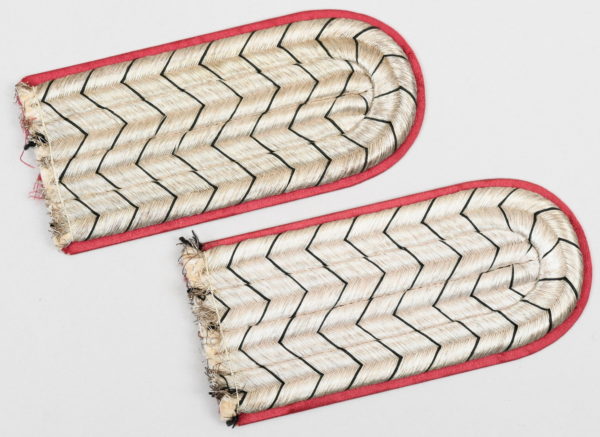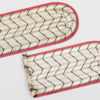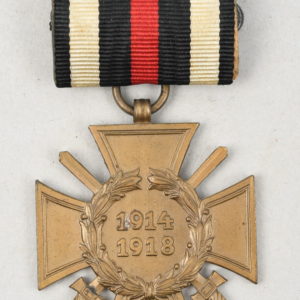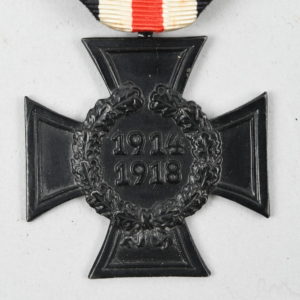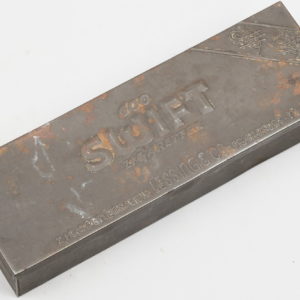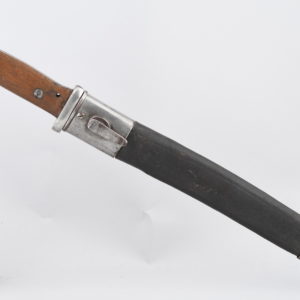Item Id: IMP01013
RKT Oberst Dr.Herbert Müller WW1 Generla Staff Leutnants shoulderboards.
€125.00
RKT Oberst Dr.Herbert Müller WW1 Generla Staff Leutnants shoulderboards.
Oberst and Doctor Herbert Müller, who was born the 16th of August 1896 in Altenburg, Germany. 1914 at the outbreak of World War I, Herbert Müller was attending gymnasium school, he discontinued his studies and joined the army at the age of 18. He enterd service in the Strassburg Regiment No.105 and he stayed in service there throughout the war, he was wounded three times and at the end of the war he had advanced to the rank of Oberleutnant and Regimental Adjutant, he recieved following awards for his service and bravery in World War I Iron Cross 1st class 1914, Iron Cross 2nd class 1914, Military Order of St. Henry Knights Cross, Saxe-Ernestine House Order Knights Cross with swords, Alberts Order Knights Cross with swords, Saxony Civil Order of Merit with swords Knight Second Class and Hindenburg Cross of Honor with swords.
After World War I, 1919-1921 there were three uprisings in the Silesian Free State in Germany which was formed shortly after the end of the war. Müller signed up as a volunteer and participated in quelling the uprisings and restoring order in the free state, for his excellent service he recieved the Silesian Eagle Order 1st and 2nd class. After this he discharged from the army to continue his studies, in 1925 he graduated as a doctor of economy. The years 1926 to 1927 he travelled to South America and returned in 1928, when he met his wife Tatjana von Goeben, they got married in 1929.
In the 1930´s Müller worked for the insurance company Berlin Alliance and at Drodene Bank until April 1934. This year he was asked to re-enlist in the army, which had expanded since Hitlers rise to power in 1933 and were in great need of officers. Herbert accepted to re-enlist and got the rank as Hauptmann and company commander in Neumünster, were he and his family lived until 1937. In 1938 the unit that Müller served in was moved into the conscription system and renamed from Infanterie to Schützen who later became either panzergrenadier or panzer recon.
In the summer 1939 Müller traveled as a civilian to the Free City of Danzig (Freistadt Danzig) and he got the command of the 2nd Batallion of Landespolizei Regiment 1, which was under the command of Gruppe Eberhardt as a part of the militarization of the free city, this was done in secrecy. At his time Müller had advanced to the rank of major. In september 1939 at the outbreak of World War II the batallion that he commanded saw action from day one and participated in the conquest of Gotenhafen (now named Gdynia). The units from Gruppe Eberhardt participated in the Polish Campaign as a part of the 60.Infanterie Division with General Eberhardt as its commander and with the Danzig Cross as the division sign.
In May 1940 when the French Campaign started Major Müller commanded the 2nd batallion which now was a part of the Infanterie Regiment 243 which was a part of the 60.Infanterie Division who broke through the Maginot line. When France was occupied and the campaign was over, the batallion that Major Müller commanded was transfered to the 3.Panzer Division as the 2nd batallion of Schützen Regiment 394. In the summer 1941 the 3.Panzer Division participated in the Operation Barbarossa, the Campaign in the East.
The 8th of September 1941 Müller was awarded the Knights Cross of the Iron Cross 1939 for his exceptional bravery and skill of command when his unit crossed the river Dnjepr, when the unit was on the east side of the river they had gotten into a difficult situation, surrounded by enemy troops and almost forced to retreat back to the west side of the river, an action which would have cost many lives, instead of retreating Müller got his batallion to hold their position which stabilized the situation. After he had recieved the Knights Cross he got some leave and went back to Germany. While he was in Germany he visited one of the men in his unit who had been wounded and was in the hospital, the man was Artur Becker-Neetz who also was a recipient of the Knights Cross. In the hospital Müller noticed that Becker-Neetz didn´t have a Knights Cross, so he gave his cross to him. In February 1942 Müller was promoted to Oberst and transfered to a military school, among the students at the school there was Bulgarian officers, and that lead to the bestowal of the Bulgarian Infantry Honor Badge to Oberst Müller. In July the same year he was appointed as regimental commander of the 126.Panzer Grenadier Regiment which was a part of the 23.Panzer Division. Oberst Müller did not hold the command of the regiment for long, the 14th of July his command tank was hit by a russian antitank grenade and he was instantly killed, this was during one of the bigger battles in the Stalingrad offensive. He was buried in a Germany Military Cemetary at Millerowo between Stalingrad and Krakow, the russians destroyed the cemetary during their offensive against Germany.
World War 1 General Staff Leutnats sew in shoulderboards. Removed from a tunic.
